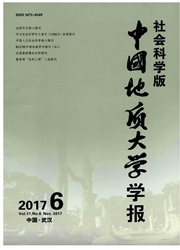

 中文摘要:
中文摘要:
消费概念在人类发展历史上经历了两次重要的分化,承载了"物的消耗"、"社会交流体系","人与自然的物质变换"三个层次的内涵,形成了消费概念的"三维立面"。由此理论基石出发,本文解析了广义和狭义可持续消费的内涵与形成机制,并主张从广义效率出发实现广义可持续消费;从需求结构、消费结构优化和激励可持续消费行为入手,破解抑制消费物质规模的难题。
 英文摘要:
英文摘要:
The concept of consumption can be deconstructed by three dimensions on the basis of its social, economic and ecological functions. Non-sustainable consumption in a broad sense refers to the overall consumption of materials beyond the human ecological and economic systems, which could also be called "excessive throughput" . The narrow point of non-sustainable consumption is the personal consumption behavior which in the long run could cause the welfare loss of the people. On the macro level, the realization of sustainable consumption depends on the general efficiency; and on the micro level, the realization of sustainable consumption is based on the optimization of demand structure and consumption structure as well as the transition of consumer's choice and behavior.
 同期刊论文项目
同期刊论文项目
 同项目期刊论文
同项目期刊论文
 期刊信息
期刊信息
